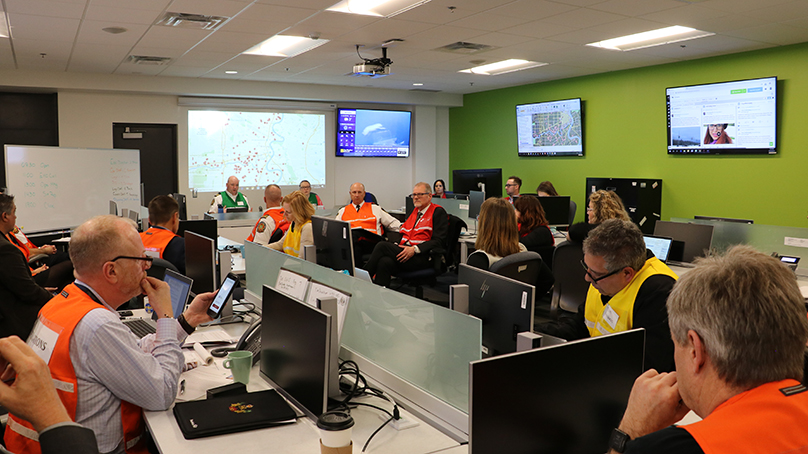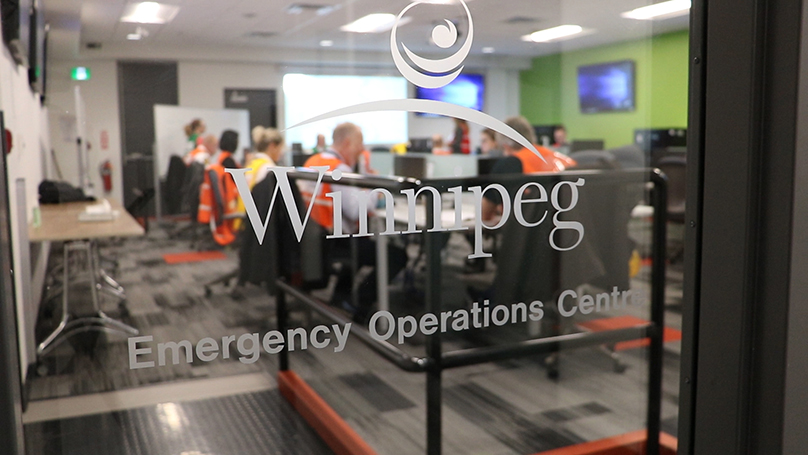
Before the first case of COVID-19 was discovered in Canada, Lisa Gilmour and her team at the City of Winnipeg’s Office of Emergency Management were tracking the virus.
Gilmour, the City’s Emergency Management Coordinator, has been instrumental in the City’s response to the pandemic, but having to be aware of all the developments around the virus can take a toll.
She has spent the last year working on the City’s response to COVID-19 and acknowledges the unprecedented challenges facing front line and health care workers for this extended emergency. At the same time, she said it’s important for everyone to know that nearly every person has been affected by COVID-19 in some way, and the stresses can add up, even if they don’t seem like a big deal at the time.
“The pandemic is hard on everyone, regardless of what your job is, and then when you are surrounded by it constantly, it’s a lot,” she said.
“It’s hard to walk away and take a break.”
Gilmour’s team supports changes that affect every city department and many residents, and often these changes need to be implemented within hours. It’s easy to get lost in some of the bigger items, Gilmour said, but paying attention to the small things can make a difference when it comes to mental health.
She also monitored her office’s afterhours emergency email account for seven months because she didn’t want to put that additional work on anyone in her team.
“I reached a point where I was just exhausted, and even though the emails seem like a really small thing, being able to say this is wearing me out was big,” she said, adding her team quickly and gladly took shifts to ensure the workload was spread out.
That moment was significant for her mental health.
“When you are comfortable talking about where you’re struggling, you can get help and people will respect that and they will listen and be willing to help,” she reflected.
“But if you don’t say anything, it won’t change or get better.”
That’s why Gilmour has taken the time to organize weekly mental health check-ins with all her team members, hold virtual coffee breaks as a chance to step away from COVID for a few moments, and prioritized Human Resource Services training opportunities for City employees involved with the Emergency Operations Centre (EOC) on mental health and resiliency.

The EOC is activated during emergencies including floods, large-scare fires, and significant storms such as the October 2019 event. It has been activated non-stop since March 5, 2020.
“It is a challenging mental health experience on smaller-scale emergency responses for anyone in the EOC,” she said. “This response was scary and frightening for three or four months but distant and removed, then it got very personal and traumatic after September because people knew people who had COVID, were hospitalized, or died from it. It permeates and the personal impact of the situation here in Winnipeg really began to be felt.”
That is especially true for MaryAnn Oprea, Business Continuity/Emergency Management Officer. She has been personally impacted by the COVID-19 and navigating the struggles of the virus was made a little less difficult with the help of her supportive colleagues.
“Their messages, just having them listen and be a shoulder to lean on made a huge difference,” she said.
“Just sharing the experience with other people, it really helped and I think it brought our team closer together and showed that you weren’t going through it alone.”
Both Oprea and Gilmour hope more people talk about how much they’ve been impacted by COVID-19, because it lets people know they aren’t alone in struggling with their mental health and may inspire others to be comfortable with asking for help.
If you or someone you know is struggling or is in crisis, you are not alone. The Manitoba Suicide Prevention and Support Line is available 24 hours a day and can be reached at 1‑877‑435‑7170.
